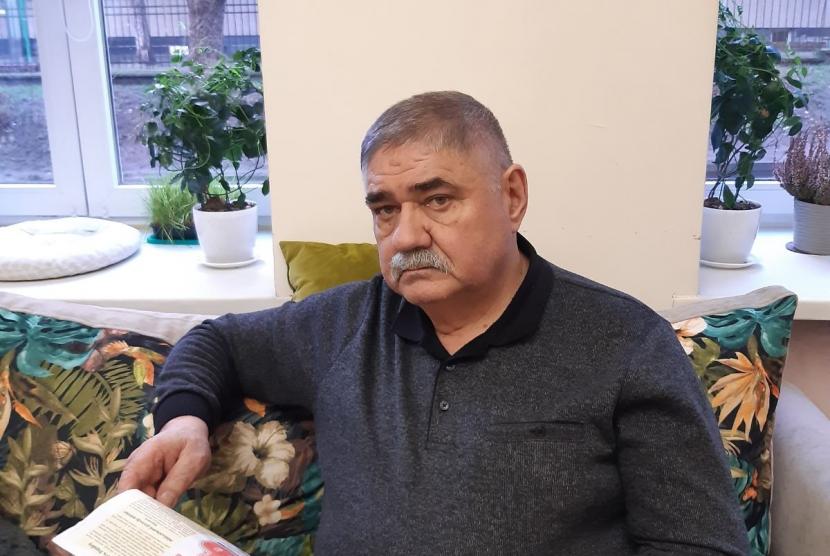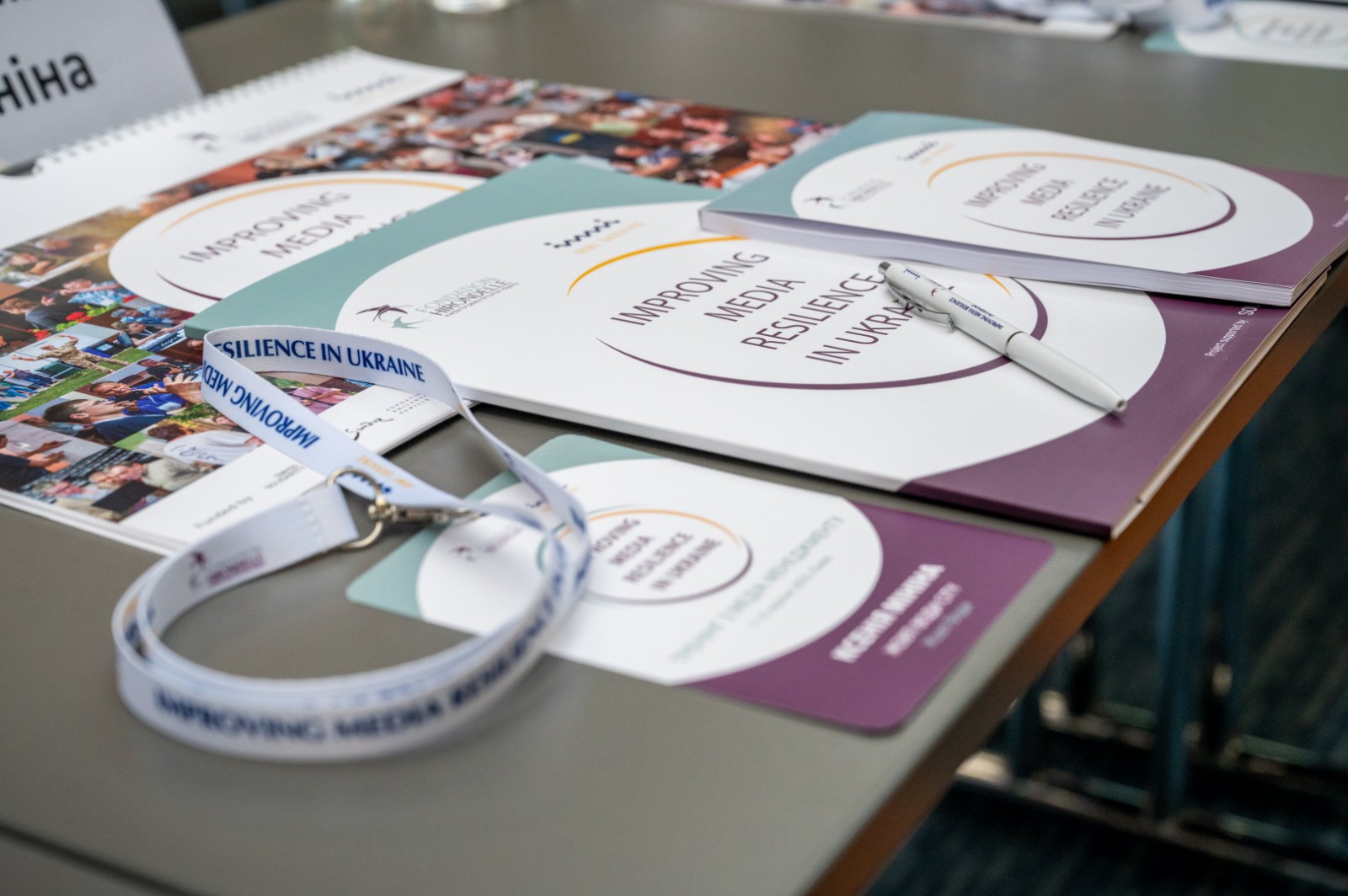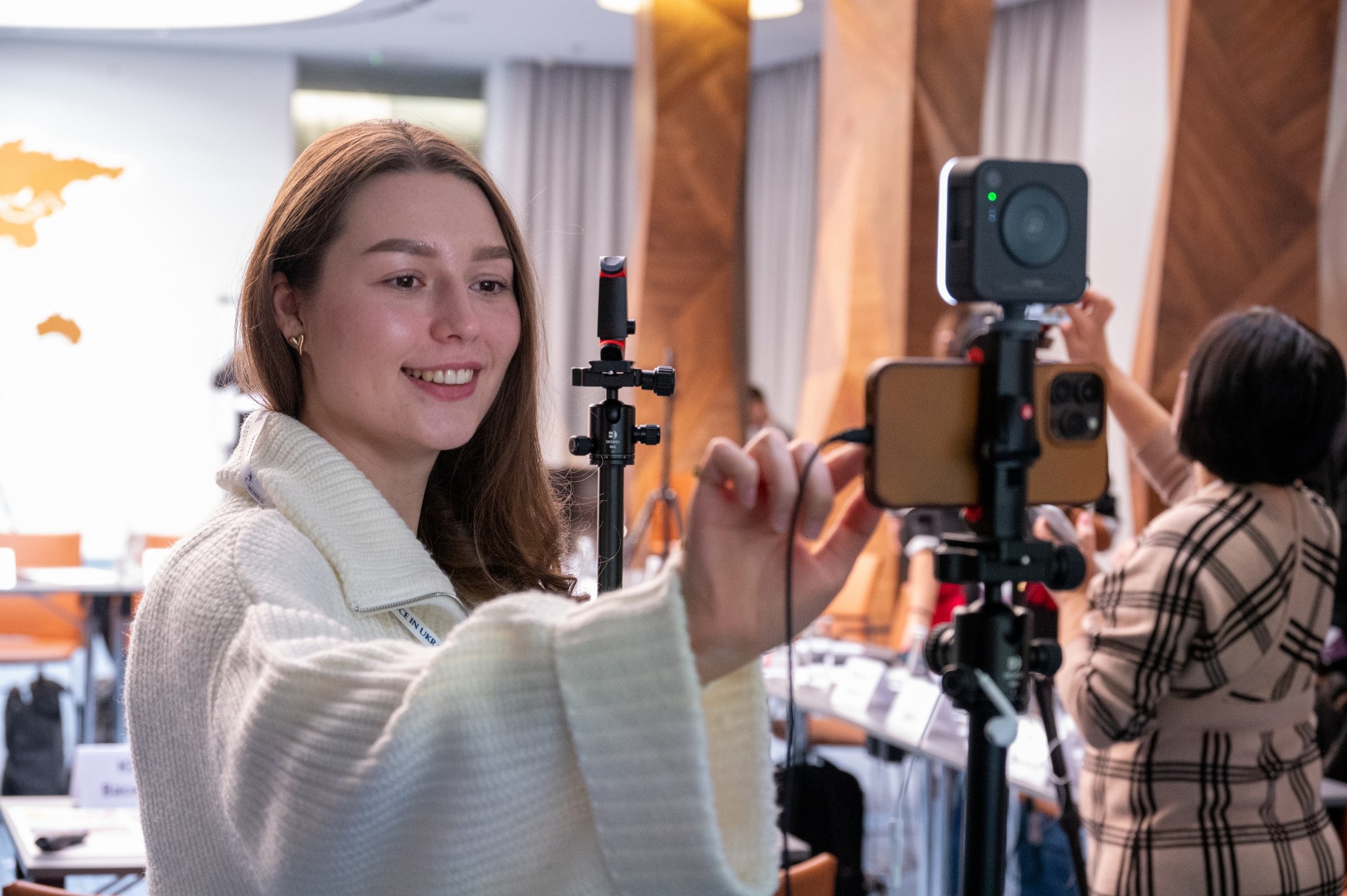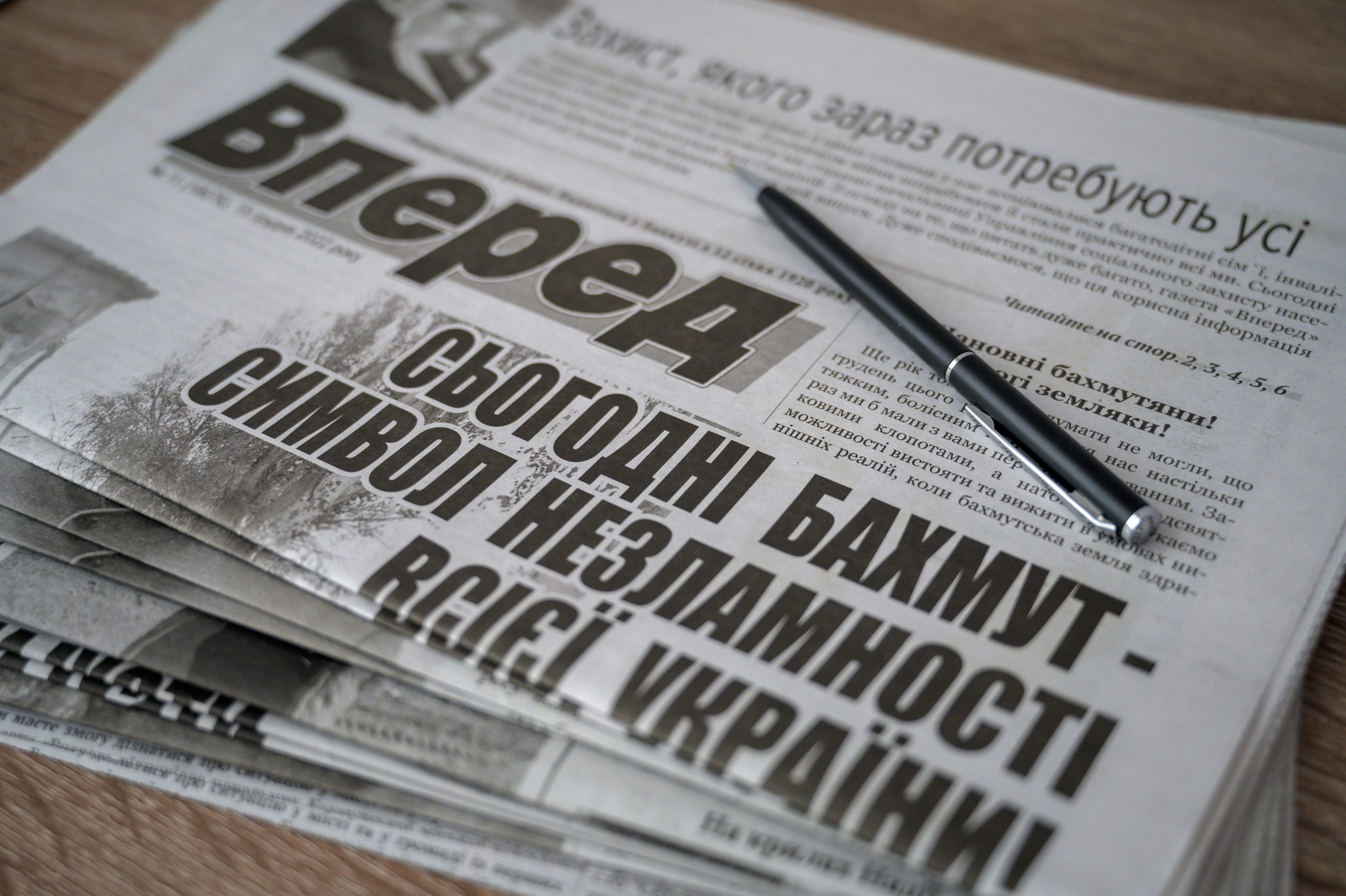We will be telling you about publications that have joined the media support project that is being implemented by IRMI in partnership with a Swiss non-profit organization Fondation Hirondelle, funded by Swiss Solidarity. How do our colleagues work under severe military conditions? Is it possible to save the editorial office, resume work, and ensure the journalists’ safety?
We are offering an interview with Anatoly Zhupyna, who has been Editor– in-Chief of The Novy Den independent newspaper of Kherson Oblast since February 1996. At the time of Russia’s full-scale offensive on Ukraine, he was in Kherson, lived under occupation for a month, saving, where possible, the documentation and newsroom’s property. In late March, after reports that rashists had come to get the Editor, I had to leave urgently, risking my life.
– In September, there was information that the publication is resuming its work in a new format. Did you manage to do this?
– The transition to the new format began a little earlier, back in early May. Having left occupied Kherson for Lviv and adapted a little, we immediately began to think about how to work further. We received major support from Lviv Media Solidarity Center under the auspices of the National Journalists’ Union of Ukraine: we were suggested a direction, also, where, and how to look for funds, and learned how to write project papers. Let alone moral support! So, we contacted the employees of our editorial office, who were scattered all over Ukraine, and those who remained in occupation. It was clear to all of us that people needed reliable information. To begin with, we decided to restart our electronic publication. We created a Facebook page and a Telegram channel. The updated NewDay ua logo was supplemented with the slogan: “What is your pain? Kherson is my pain.” Regional news has become a priority for us. But while the Kherson Oblast was in occupation, for obvious reasons, going print was out of the question.
When Kherson was liberated on November 11, we began considering the newspapers’ re-establishment. On November 17, supported by the National Journalists’ Union of Ukraine and its international partners, the first special issue was released. The main topics the issue covered were the de – occupation of Kherson, President Zelensky’s arrival, humanitarian aid, the re-opening of post offices, banks, local mobile networks resuming coverage, and so on. The newspaper’s content was upbeat and optimistic. It was clear to everyone, though, – the rashists would not leave us alone, they would be taking revenge. And so it turned out.
Between The Novy Den first and second special issues, much has changed in the liberated Right-Bank Kherson area: the enemy from the Left Bank was shelling the cities and villages mercilessly, hitting residential buildings, infrastructure facilities, hospitals, schools, humanitarian aid delivery points… Because of this, many people who had survived the occupation left the city. Fortunately, due conditions had been established to make this a reality.
Bringing the publication back to life into the current format – newspaper, website, Facebook page, and a Telegram channel – was possible due to the financial support of Ukraine’s National Union of Journalists and its international partners. We would like to thank the International Institute of Regional Media and information (IRMI) for supporting the activities of our team.
The third issue is now getting into print. I look forward to the day when we can run the word “Victory” in a large font on our title page!
– Is it possible to receive feedback from your audience?
– Of course, we are inspired by our readers who constantly give feedback: in writing, by phone, or by leaving their comments under the stories. My mobile number is in the newspaper for a reason – so that people could talk about their problems, and we could help them. The requests and queries were not long in coming. The telephone calls would come from the former Velykoaleksandrivsky (now Berislavsky) Raion, people asking for help to go to Ukraine’s Western Oblasts, to safer areas. The Kherson Oblast reported on possible collaboration of the former hromada head with the occupiers. People are mostly concerned about everyday problems, humanitarian aid, medical and pension provision, etc.
– How do you get information for your stories?
– The journalists that remained in the occupied area reported on the situation on the ground. Partly in the absence of a stable connection and with a risk to life. In order to send out information, they had to travel a considerable distance in search of stable signal. At the same time, the issue of conspiracy remained important both for the journalists and for their informants, because neglecting it costs lives.
After the liberation of the right-bank Kherson Oblast, it became easier to receive information from there. Journalists are freer in their movements, although under explosions, when they need to work on a story.
We also maintain close ties with the Kherson communities formed in Lviv, Ivano-Frankivsk, Vinnytsia, etc. We are getting interesting bits of information on how IDPs are coping, the assistance they provide to the Armed Forces of Ukraine and residents of the de-occupied areas of the Kherson Oblast.
– What kind of content do you find to be the most relevant today for Kherson and beyond?
– Today the Kherson Oblast is undergoing particularly difficult times. It so happened that the Right Bank of the Oblast has been liberated, constantly suffering from crushing enemy attacks, though. The Left Bank is still under rashists unbearable yoke. Different life circumstances are also dictating the different topics that people are interested in. On the liberated land one needs information about humanitarian aid, evacuation, state aid and volunteers, healthcare, pensions, and building materials.
While on the Left Bank, people have completely different pain: pressure from the invaders, deportation, children being removed under the guise of rehabilitation, civilians being abducted and murdered, partisan movement, forced business acquisition, and the prospects of liberation. Our main task is to provide reliable information to Dnieper’s both banks.
We also know that our audience is scattered far beyond the borders of the Kherson Oblast and Ukraine. These are citizens of Ukraine who fled the war and compassionate foreigners. They need to receive information from the occupied and liberated South too.
– What tasks are awaiting the editorial staff soon? What kind of support are you expecting the Project to grant you? What are the most important things?
– Our daily current affairs updates are available on our website (www.newdayua.net), on our Facebook page and Telegram channel. The special print issues contain information that would not lose its relevance over a longer period: interviews, analytics, useful contacts and tips, etc. The geography of the publication matters to us, so that content is not only Kherson-centered. We keep in mind the occupied Left Bank too. People, when they have been liberated, will see that all this time their issues were covered, they were never forgotten.
The Kherson office used to have all the necessary materials and equipment and a large team of professionals. In a new place and under new circumstances, I had to start from scratch. So, it was only for the financial and technical support of committed colleagues, partners, and donors that made it possible for us to stay afloat and re-establish ourselves.
This project makes it possible to purchase much-needed equipment for work, meeting the basic needs of the editorial staff for consumables, also, enabling us to engage with more journalists, giving them better fees, and expand the geography of business trips.
To us the most important thing is the re-establishment of a stable and regular Novy Den print version. Unfortunately, the full-fledged work of the editorial office is impossible without donor support, as subscriptions and advertising do not suffice. However, the audience’s need for the printed word is huge. In the Kherson Oblast, as you know, there are electricity problems, internet, and mobile signal issues, and therefore access to information is hampered. People rejoice at receiving their beloved newspaper – as they would at a breath of fresh air. The newspaper is a symbol of freedom and indestructibility. Once a reader telephoned and said that when they were holding The Novy Den first special issue, the whole family was crying. The last time newspapers were published here was before the full-scale war…








